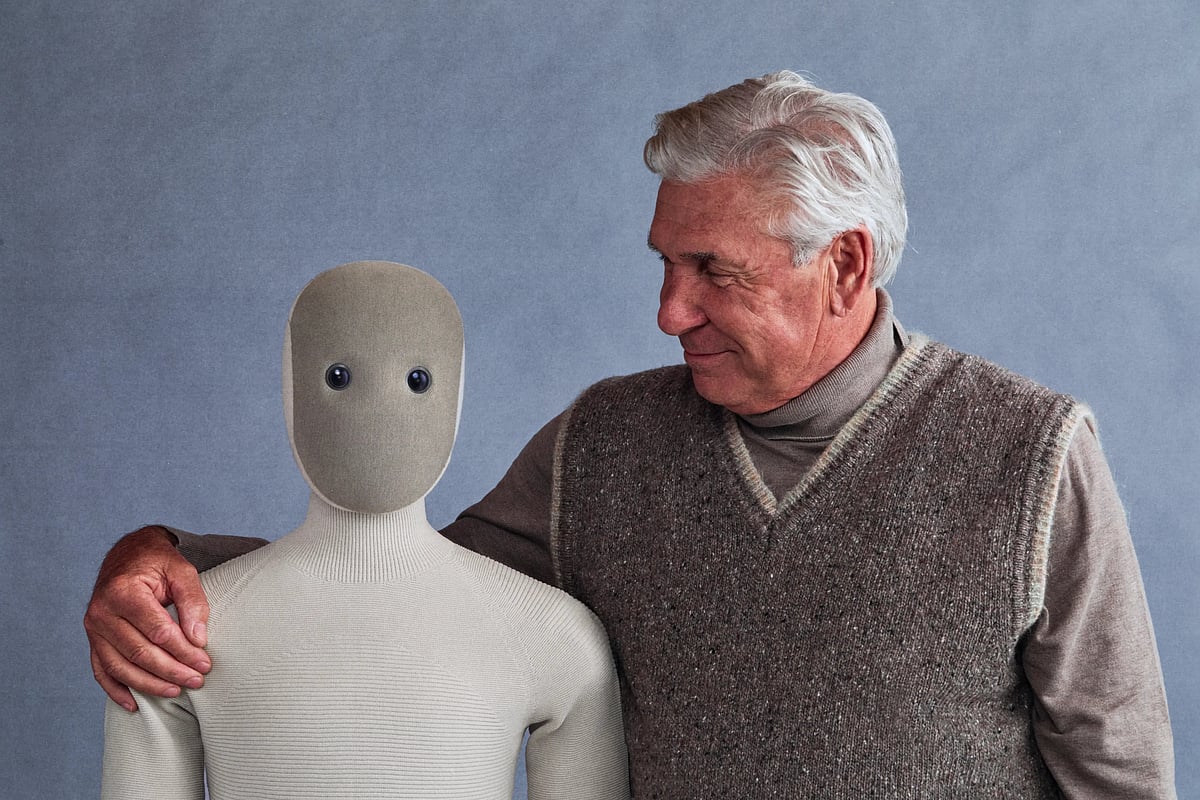NEO: The Future of Home Assistance Robotics Unveiled
In a significant development for home automation, 1X Technologies has unveiled NEO, a humanoid robot aimed at transforming everyday household tasks. Priced at $20,000 or available through a subscription model of $499 per month, NEO is set to be delivered in 2026. This innovative robot is being marketed as the first mass-market home assistant, designed to integrate seamlessly into daily life.
Design and Capabilities
NEO weighs approximately 30 kg and can lift up to 68 kg while carrying up to 25 kg. Its design features a soft polymer body with neutral colors such as tan, grey, and dark brown, making it visually appealing for home environments. Operating at a noise level of just 22 dB, NEO is quieter than many household appliances, allowing it to function unobtrusively in a living space.
At the core of NEO’s functionality is a sophisticated built-in large language model, combined with visual and audio intelligence. This enables the robot to recognize items on a kitchen counter and suggest recipes based on available ingredients. Users can interact with NEO through voice commands or a dedicated app, and the robot is designed to learn and adapt to individual preferences over time.
Challenges Ahead
Despite its impressive specifications, NEO is still an early-generation product. According to a preview by Fast Company, 1X acknowledges that NEO will not be able to perform all household tasks autonomously right away. Some complex chores will require “expert remote supervision,” highlighting the robot’s current limitations.
The home environment presents unique challenges that differ significantly from controlled settings like factories or labs. Factors such as spills, pets, and shifting furniture can complicate NEO’s operations. 1X has framed the initial deployment of NEO as a “learning phase” for both the robot and its users, emphasizing the need for adaptability in a chaotic home setting.
The Future of Home Robotics
The introduction of NEO comes at a time when the costs of robotics are decreasing, AI technologies are advancing, and consumers are becoming more receptive to multifunctional devices. While robotic vacuum cleaners and lawn mowers have become commonplace, a humanoid robot in the living room represents a significant leap forward in home automation.
1X Technologies, previously known as Halodi Robotics, has shifted its focus to the home market and secured substantial funding, including investments from the OpenAI Startup Fund. If successful, NEO could redefine home automation, enabling tasks ranging from controlling smart devices to performing chores like folding laundry and carrying groceries.
Key Considerations
Several challenges must be addressed for NEO to succeed in the market:
– **Reliability and Autonomy**: Will NEO be able to operate safely and effectively without constant supervision? Early models may rely on remote experts for certain tasks, raising questions about long-term autonomy.
– **Cost versus Value**: At $20,000, many potential customers may hesitate. The question remains whether the time saved by using NEO will justify its price tag and whether subscription models will make it more accessible.
– **Integration and Ecosystem**: Homes are filled with various appliances and layouts. NEO must be able to adapt to different environments, including those with pets and children.
– **Safety and Regulation**: The presence of a humanoid robot in a home raises concerns about liability, privacy, and safety. 1X has emphasized that safety will be a top priority in the development and deployment of NEO.
– **User Expectations**: Early demonstrations have shown that robots may perform tasks more slowly than humans. This discrepancy could affect user satisfaction and acceptance.
Conclusion
NEO represents a pivotal moment in the evolution of home robotics, shifting the focus from industrial applications to personal assistance in everyday life. The success of this humanoid robot will depend on how effectively 1X Technologies navigates the challenges of reliability, cost, and user integration. As we approach its anticipated release, NEO has the potential to change our perceptions of home automation and redefine our daily routines.
FAQs
What tasks can NEO perform?
NEO is designed to assist with various household chores, including cooking suggestions, light control, and potentially more complex tasks as it learns and adapts to its environment.
How much does NEO cost?
NEO is priced at $20,000, or it can be acquired through a subscription model costing $499 per month.
When will NEO be available for purchase?
The anticipated delivery date for NEO is set for 2026, allowing time for further development and refinement of its capabilities.
Also Read:
Dubai Rental Market Sees Price Drops in Key Areas
Microsoft and OpenAI Restructure Partnership for Future Grow







